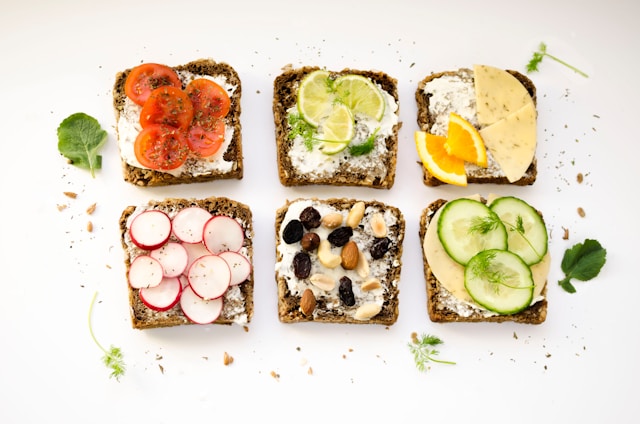What you should eat to help with weight loss

Dr. Willie T. Ong is an internist and cardiologist with a master’s degree in public health.
He shared with us a prescription that consists of diet-friendly food that can help us lose weight faster.

Vegetables and salads: Start your meal with a salad. Doing so will lessen your intake of main dishes. Vegetables, being high in fiber, make us full faster.
Grapefruit: Eating half a grapefruit three times a day, may help you lose up to 4 pounds in three months, he said, pointing to a study by the Louisiana State University.
Apple: An apple a day keeps obesity away. Dr. Ong referred to findings by scientists at Penn State stating that people who ate an apple (medium size: 80 calories) before lunch ingested an average of 187 calories less during their actual meal.
Apples contain pectin that lowers blood cholesterol and sugar levels.
Interestingly, said Dr. Ong, researcher Dr. Julie Obbagy claims that the act of chewing an apple is satisfying because it feels like you are eating more food.
Pears: Eating three small pears a day allowed overweight women to lose weight, as compared to those who didn’t, based on data from Brazil. Pears also contain pectin that helps lower blood sugar levels.
Eggs: Those who eat eggs for breakfast are more satisfied, and eat less throughout the day, according to the Journal of the American College of Nutrition. Healthy individuals can eat up to one egg a day, said Ong.
Bananas: There is a banana diet in Japan, according to Dr. Ong. He also met an exercise instructor who lost 50 pounds by eating bananas daily. Bananas are high in fiber and low in calories. They also act as a natural antacid. Diabetics should avoid the very sweet and overripe ones, though.
Natural appetite suppressant
Beans: They are low in fat, low in salt and have zero cholesterol. Dr. Ong prescribed eating ½ cup of cooked beans daily, as this can reduce cholesterol and regulate blood sugar levels. Eating beans increases cholecystokinin, a digestive hormone and a natural appetite suppressant. Those with gout and uric acid should be mindful of their consumption.
Vinegar: The secret weight-loss component in vinegar is the acids, believed to slow down the passage of food from the stomach to the intestines. This, he noted, keeps you feeling full for longer. He went on to say that vinegar has the ability to blunt the natural rise in blood sugar after a meal.
The safest way to consume vinegar is to incorporate it in your diet. A dose of 1–2 teaspoons (5-10 ml) with meals, once or twice a day, may be enough to decrease appetite and promote weight loss. Those who have hyperacidity, however, should watch their vinegar intake.
Tofu: The protein in tofu may reduce one’s appetite. It is also a good substitute for animal protein.
Green tea: This contains catechins, an antioxidant that may aid in weight loss. Dr. Ong advised drinking two cups of green tea a day, drinking it within two hours of its preparation. Choose a noncaffeinated variety to lessen any side effects, like heart palpitation.
High-fiber cereal, brown rice and wheat bread: Generally, high fiber food helps control weight gain because they make one feel stuffed. Food classified in this category help prevent Type-2 diabetes and reduce cholesterol levels.
Oily fish like sardines, tilapia, mackerel and salmon: These are rich in omega-3 fatty acids that are good for the heart. Researchers believe that foods high in omega-3 fatty acids increase the body’s levels of leptin, a hormone that tells our brain that we are already full. Eating fatty fish leaves one feeling full and satisfied even two hours after the meal. Eat oily fish three times a week.
Healthy bacteria
Yogurt: Dr. Ong referred to a study from the University of Washington in Seattle stating that the consumption of yogurt makes one feel less hungry, compared to drinking fruit juices and other sugar-laced drinks. Yogurt contains “live and active cultures,” healthy bacteria to help prevent stomach cancer and ulcers.
Oatmeal: A bowl a day can cut down cholesterol by around 10 percent. Oats contain a spongy, soluble fiber called beta-glucan that sucks cholesterol in the intestines and eliminates them from the body. Studies suggest that oats may lower blood pressure in hypertensive patients.
Oats may slow down the rise in one’s blood sugar. This helps prevent food cravings. Due to the dietary fiber in oats, one is kept full and satisfied. The doctor said just watch out for gas and bloating from too much of it.
Chicken without skin and turkey breast: To further reduce fat intake, opt for the breast without the skin. Lean meat can be had occasionally. Remove fat from meat. Pork fat is easier to rid off, as beef fat is marbled into the meat.
The American Heart Association recommends eating no more than 6 ounces of cooked lean meat, poultry, fish or seafood a day (about the size of two decks of cards per day). Avoid “prime” grade beef, as it contains more fat. The leanest beef cuts are sirloin, chuck, loin and round. For pork, choose tenderloin or loin chops, trimming all visible fat before cooking.
Water: Take a glass of water or a cup of clear soup to fill your stomach prior to a meal. Drink eight to 10 glasses of water a day, especially when you are trying to lose weight. Water has zero calories and will not make you fat. INQFollow @iamreggieaspiras on Instagram and Facebook; visit reggieaspiras.com.

















